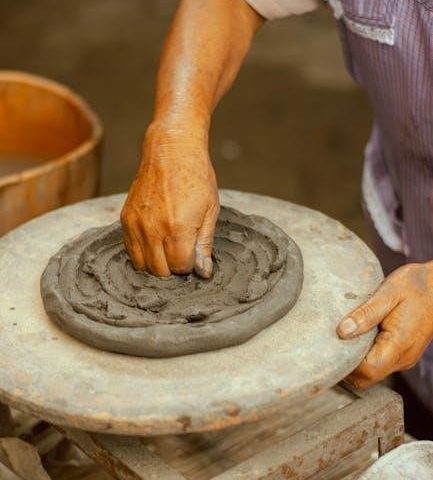A Guide to Confession for Kids
This guide helps children understand and prepare for confession. It offers age-appropriate explanations, prayers, and self-examination prompts based on the Ten Commandments and the love chapter of 1 Corinthians. Resources include illustrated books and printable guides available online, making the process easier and less daunting for young ones.
Understanding Confession
Confession, also known as Reconciliation, is a beautiful gift from God! It’s a chance to talk to a priest about the things we’ve done wrong since our last confession, or since our baptism if it’s our first time. Think of it like cleaning your room – we all make messes sometimes, and confession helps us clean up our hearts. The priest acts as God’s representative, offering forgiveness and peace. It’s a private and confidential conversation, so you can be honest and open without worrying about anyone judging you. Remember, God loves you unconditionally, and He wants to help you grow closer to Him. Confession isn’t about punishment, but about healing and reconciliation with God and yourself. It’s a chance to start fresh, feeling lighter and closer to God’s love.
Why We Go to Confession
We go to confession to receive God’s forgiveness for our sins. Just as we might apologize to a friend after hurting them, confession allows us to ask God for forgiveness for the times we’ve fallen short of His love. It’s a way to acknowledge our mistakes and ask for help to do better. Think of it as a spiritual “reset button,” helping us to feel closer to God and to live a happier, more peaceful life. Regular confession helps us to grow in holiness and strengthens our relationship with God. It’s also a chance to receive God’s grace and guidance, helping us to overcome challenges and live according to His teachings. It’s not about feeling ashamed, but about acknowledging our imperfections and seeking God’s love and mercy. The peace and freedom that come from confession are a true gift.
Preparing for Confession⁚ Prayer and Examination of Conscience
Before going to confession, it’s helpful to spend some time in prayer. Ask the Holy Spirit to guide you and help you remember your sins. An “examination of conscience” is a key part of preparing. This involves reflecting on the Ten Commandments and considering whether you’ve kept them. Did you tell the truth? Did you respect your parents and others? Did you treat others with kindness and fairness? Did you steal or damage anything? Think about your actions and words since your last confession. Don’t worry about remembering every single detail; simply try your best to recall any times you knowingly went against God’s will. Write down your sins if that helps you remember them. The goal is to honestly examine your heart, not to feel overwhelmed or discouraged. Remember, God’s love and mercy are boundless.
The Ten Commandments⁚ A Guide for Self-Reflection
The Ten Commandments provide a framework for examining your conscience. Reflect on each one⁚ Did you honor God above all else? Did you use God’s name respectfully? Did you keep the Sabbath holy? Did you honor your parents? Did you avoid killing or harming others? Did you avoid sexual sin? Did you steal or take what wasn’t yours? Did you tell lies or gossip? Did you desire what belongs to others? Did you lust after anyone? Consider specific instances. Did you lose your temper and say something hurtful? Did you disobey your parents or teachers? Did you cheat on a test or take something without permission? These questions aren’t meant to make you feel guilty, but to help you honestly assess your actions and attitudes. Remember that God’s forgiveness is available to those who sincerely repent.
Common Questions Children Have About Confession
Many children wonder about the process of confession. They might ask⁚ “Will the priest be angry?” The answer is a reassuring no; priests are there to offer forgiveness and guidance. Another common question is⁚ “Do I have to tell everything?” The focus should be on sincere repentance for significant wrongs, not a complete recounting of every minor mistake. Children may also worry about forgetting something. A good examination of conscience beforehand helps, but even if something is missed, future confessions are always possible. Some children feel embarrassed or ashamed to confess. It’s understandable to feel shy, but remember that God’s love is unconditional, and the priest is there to help you. Finally, children may wonder about the purpose of penance. Penance is not punishment, but an act of reparation and a chance to grow closer to God.
What to Say During Confession
Begin by making the Sign of the Cross and saying, “Bless me, Father, for I have sinned. It has been [length of time] since my last confession.” Then, honestly and clearly, confess your sins. Avoid vague statements; be specific about your actions. For example, instead of saying “I was mean,” say “I called my sister names and pushed her.” If it’s your first confession, mention that. After listing your sins, express your sorrow. You can say something like, “I am truly sorry for these sins and for all the sins of my life.” It’s important to show remorse for your actions and a genuine desire to change. Next, state your intention to avoid those sins in the future. You might say, “I will try my best not to do these things again.” Finally, thank the priest for hearing your confession. A simple “Thank you, Father,” is sufficient. Remember, honesty and sincerity are key; God sees your heart.
Confession⁚ The Process
The confession process begins with approaching a priest, either face-to-face or behind a screen for added privacy. After a brief greeting, you’ll make the Sign of the Cross. The priest may offer a prayer or a short Scripture reading. Then, you begin your confession. Remember to be honest and specific about your actions. After listing your sins, express your sorrow and your commitment to avoid repeating them. The priest will then offer words of absolution, forgiving your sins in the name of Jesus Christ. This is a moment of great grace and peace. Following absolution, the priest may suggest a penance, such as saying extra prayers or performing an act of kindness. Completing your penance helps demonstrate your commitment to change and strengthens your relationship with God. Finally, leave feeling renewed and forgiven, ready to start afresh.
Different Ways to Confess
Children can confess their sins in a few different ways, making the experience comfortable and accessible. Many churches offer the option of confessing face-to-face with the priest, allowing for personal interaction and a sense of direct connection. Alternatively, some churches provide confessionals with screens, offering anonymity and privacy for those who feel more comfortable sharing their sins without direct eye contact. The method you choose is entirely up to you; there is no right or wrong way. Some churches also offer group confessions or community penance services, which can be a helpful option for children who might feel less nervous confessing within a group setting. No matter the method, the most important thing is honesty and sincerity in expressing your remorse for your actions. The goal is to receive God’s forgiveness and to grow closer in your relationship with Him.
After Confession⁚ Peace and Forgiveness
Following confession, a profound sense of peace and forgiveness washes over you. This feeling is a gift from God, a tangible manifestation of His boundless love and mercy. The weight of your sins is lifted, replaced by a lightness of heart and a renewed sense of hope. It’s a chance to start fresh, leaving behind the burdens of the past and embracing a brighter future. Remember to cherish this feeling of peace and allow it to guide your actions moving forward. The priest’s absolution is a powerful affirmation of God’s forgiveness, but it is also an invitation to live a life that reflects this newfound grace. Take some time for quiet reflection, perhaps prayer, to fully absorb the experience and let the peace settle within you. This peace is not just a fleeting feeling; it’s a foundation for ongoing growth in faith and a closer relationship with God. Carry this peace with you as you continue on your journey of faith.
Penance and Making Amends
Penance isn’t just punishment; it’s an opportunity to actively repair the harm caused by your actions. Think of it as a chance to make things right. The priest might suggest a penance, like saying extra prayers or performing an act of kindness. This isn’t about suffering, but about showing your commitment to change and making amends where possible. If you hurt someone’s feelings, a sincere apology can go a long way. Perhaps you can help with chores, donate to a charity, or simply offer a helping hand. The key is to choose a penance that is meaningful to you and helps you grow spiritually. Reflect on what specific actions you can take to prevent repeating the same mistakes in the future. This active participation in making amends strengthens your commitment to living a life aligned with God’s love and mercy. The goal is not just to avoid repeating the same sins, but to actively grow in virtue and holiness.
The Importance of Regular Confession
Regular confession isn’t just about avoiding serious sins; it’s about maintaining a healthy spiritual life. Just as we regularly clean our rooms, tending to our souls through regular confession helps us stay connected to God. It’s a chance to regularly examine our hearts, identify areas needing improvement, and seek God’s forgiveness. Think of it as spiritual spring cleaning, clearing away any negative patterns or habits that might be hindering our growth. Through regular confession, we receive God’s grace and strength to live more virtuous lives. It’s a preventative measure, helping us avoid falling into the same traps and strengthening our resolve to live according to God’s will. This consistent practice helps us develop a deeper relationship with God, strengthens our faith, and provides ongoing spiritual guidance and support. It offers the opportunity for continued growth and renewal, maintaining a clean conscience and a heart open to God’s love.
Confession⁚ A Gift from God
Confession isn’t a punishment, but a precious gift from a loving God. It’s an opportunity to experience His immense mercy and forgiveness. Jesus himself demonstrated this boundless love, offering forgiveness to all who repent. Through confession, we receive this same love and healing. It’s a chance to reconcile with God and ourselves, freeing ourselves from the burden of guilt and shame. Confession allows us to experience the transformative power of God’s grace, cleansing our hearts and souls. It strengthens our relationship with Him, deepening our trust in His unwavering love and compassion. By honestly acknowledging our weaknesses and seeking forgiveness, we open ourselves to His boundless mercy, receiving the peace and joy that only He can provide. It’s a journey of spiritual growth, leading to a more fulfilling and meaningful life lived in accordance with God’s loving plan. Embrace this gift, allowing it to shape and transform your heart.


